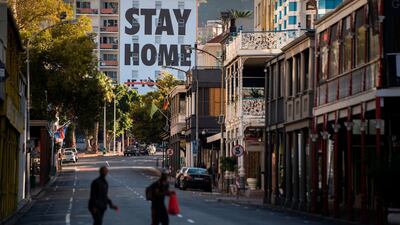Now that the axe has fallen and South Africa's only remaining investment grade rating is slashed, Africa's second-largest economy might be forced to take hard decisions its faction-ridden government has tried so hard not to.
Last week Moody’s Investors Service, like its peers S&P Global Ratings and Fitch, cut the country's ratings to sub-investment grade, downgrading the country to Ba1 from Baa3.
Moody's had been the lone holdout until last week and had opted to give President Cyril Ramaphosa's administration a chance to begin rolling back a decade of what some say were calamitous economic policy decisions by his predecessor, Jacob Zuma.
Moody’s cited the vast public sector wage bill, growing budget deficit and government debt growth among other reasons for the downgrade. It also listed corruption by the former regime among the reasons for downgrade.
"The broader erosion in institutional strength induced by the widespread corruption of the Zuma administration is an important factor behind the erosion in South Africa's credit profile in recent years," Moody's said in its report that was released on March 27.
While Mr Ramaphosa is generally viewed as a reformer and business friendly, he took office with a wafer-thin majority during the party’s elective conference in December 2017.
The supporters of Mr Zuma, entrenched unions, plus weak tax and investigative institutions have made reforms challenging.
The country is now facing the twin crises of being downgraded to junk rating territory and the rapid spread of the coronavirus outbreak that has led to the entire country being locked down.
It is one of the worst times for the country and perhaps the gravity of the situation would provide the basis to end the political stalemate blocking an economic overhaul.
"Covid is a crisis, but let's use this as an opportunity to get back to credit worthiness," said Cas Coovadia, chairman of Business Unity South Africa.
As of Sunday, South Africa had more than 1,500 Covid-19 cases, nine deaths and 95 recoveries, according to Johns Hopkins University which is tracking the pandemic globally. There are over 1.2 million infections worldwide and more than 64,000 people have died, while about 247,000 have recovered.
Over the past few weeks, some of the country’s most prominent entrepreneurs have made 5.5 billion rand (Dh1.05bn) available to fight the virus.
Businesses had swung behind the government's plans to operate remotely and agreed to give staff paid leave and provide meal packages for the unemployed.
A broad coalition of businesses and politicians could also swing behind efforts to regain the country’s investment grade status that can help it raise cheaper financing to build the battered economy.
“This has created a compact [link] between business leaders, government, community leaders,” Mr Coovadia said.
“We need the government to show leadership and take the hard decisions that should have been taken three years ago.”
Minister of Finance Tito Mboweni, who has expressed frustration in the past over the slow pace of reforms, appears eager to do just that.
“When I spoke to the president before Moody’s announced their decision, he said to me, ‘We now need to move more boldly on the structural reforms programme',” Mr Mboweni said in a televised press briefing.
“I said, ‘Hallelujah’! I’ve been preaching that agenda for a long time.”
Mr Mboweni has supported the idea of closing down or selling off state enterprises such as the loss-making airline South African Airways. He has also called for Eskom, the crumbling state electricity company, to be broken up.
These are some of the reforms that economists have been calling for, for years.
“Government would need to make a concerted effort to get us back to investment grade,” Saveshen Pillay, head of South Africa-based Credit Ratings Analytics, said.
This will entail politically unpalatable action such as reducing the state wage bill, a move that the country's powerful unions have vowed to resist.
Other countries that lost and regained their investment rating did so by adopting market reforms.
Hungary was downgraded to junk rating in 2012, but with policy actions and advice from the International Monetary Fund, it was able to return to investment grade rating last year.
“South Africa should take a pro-growth approach, similar to what Hungary did,” Mr Pillay said.
The government will have to act fast. The currency, the rand, has lost almost 40 per cent of its value against the US dollar this year, trading at 19 to the greenback.
The country's health ministry issued a warning that the sliding currency had made it difficult to import medical equipment to fight the coronavirus outbreak.
Tax authorities also said they fell short of their revenue by 66bn rand, a further sign that business and taxpayers were tapped out.
Even the one faint ray of sunlight – a weakened currency makes the country a cheaper place visit – is unlikely to offer much solace during the global virus shutdown. Once tourism returns, it may become a selling point.
"South Africa would now obviously like to sell itself as a value for money destination," said Unathi Henama, tourism lecturer at the Tshwani University of Technology.
“The devaluing of the rand against the euro, pound and dollar will make the country a relatively cheap destination.”
For most South Africans, however, the fall in the rand will only bring more hardship as imports ranging from electronic goods to fuel will go up.
“Obviously, this is at the expense of the public, who must pay more for petrol and their discretionary spending is reduced,” Mr Henama said.

